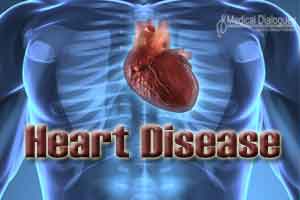- Home
- Editorial
- News
- Practice Guidelines
- Anesthesiology Guidelines
- Cancer Guidelines
- Cardiac Sciences Guidelines
- Critical Care Guidelines
- Dentistry Guidelines
- Dermatology Guidelines
- Diabetes and Endo Guidelines
- Diagnostics Guidelines
- ENT Guidelines
- Featured Practice Guidelines
- Gastroenterology Guidelines
- Geriatrics Guidelines
- Medicine Guidelines
- Nephrology Guidelines
- Neurosciences Guidelines
- Obs and Gynae Guidelines
- Ophthalmology Guidelines
- Orthopaedics Guidelines
- Paediatrics Guidelines
- Psychiatry Guidelines
- Pulmonology Guidelines
- Radiology Guidelines
- Surgery Guidelines
- Urology Guidelines
CABG best option for patients With DM with LV Dysfunction

The role of percutaneous coronary intervention (PCI) and coronary artery bypass grafting (CABG) in patients with diabetes mellitus (DM) and multivessel coronary artery disease (CAD) has been established by large trials; however, these trials largely excluded patients with left ventricular dysfunction (LVD).Dr.Jeevan Nagendran from the University of Alberta in Canada and colleagues evaluated whether treatment with PCI or CABG leads to improved outcomes in patients with DM, CAD, and LVD.The investigators concluded that patients with CAD, DM, and LVD treated with CABG exhibited a significantly lower incidence of major adverse cardiac and cerebrovascular events and better long-term survival over PCI, without a higher risk for stroke.The study has been published in the Feb. 27 issue of the Journal of the American College of Cardiology.
In this propensity-matched study, outcomes were compared for patients with CAD, DM, and LVD treated with PCI or CABG between 2004 and 2016.The Patients in the study underwent isolated CABG without a concomitant procedure or PCI . The researchers included 2,837 patients in the study analysis and 1,738 in propensity-score matched analysis. The primary outcome was major adverse cardiac and cerebrovascular events, defined as the composite of death, stroke, myocardial infarction, and repeat revascularization. Secondary outcomes were the individual components of the primary outcome.
The researchers found that PCI compared with CABG was associated with a higher risk for major adverse cardiac and cerebrovascular events in cohorts with ejection fraction (EF) 35% to 49% and <35% . Treatment with PCI was also associated with an increased risk for death in both the EF 35% to 49% and the EF <35% cohorts. Te stroke rate did not differ between PCI and CABG in either EF cohort. PCI was associated with an increased rate of MI in the EF <35% cohort, and repeat revascularization occurred more frequently in patients treated with PCI in both the EF 35% to 49% cohort and the EF <35% cohort.
At long-term follow-up, patients with CAD, DM, and LVD treated with CABG exhibited a significantly lower incidence of major adverse cardiac and cerebrovascular events and better long-term survival over PCI, without a higher risk for stroke, The researchers concluded.
For further reference log on to : DOI: 10.1016/j.jacc.2017.12.024

Disclaimer: This site is primarily intended for healthcare professionals. Any content/information on this website does not replace the advice of medical and/or health professionals and should not be construed as medical/diagnostic advice/endorsement or prescription. Use of this site is subject to our terms of use, privacy policy, advertisement policy. © 2020 Minerva Medical Treatment Pvt Ltd